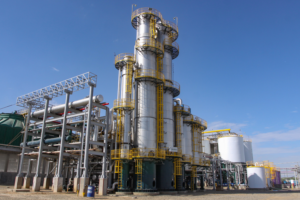 Flint Hills Resources, the main supplier of transportation fuel to Central Texas, has announced plans to build a dedicated pipeline to supply jet fuel to Austin Bergstrom International Airport. Austin is the largest airport in the country and relies on daily truck shipments for its jet fuel supply, instead of a pipeline.
Flint Hills Resources, the main supplier of transportation fuel to Central Texas, has announced plans to build a dedicated pipeline to supply jet fuel to Austin Bergstrom International Airport. Austin is the largest airport in the country and relies on daily truck shipments for its jet fuel supply, instead of a pipeline.
Flint Hills Resources has supplied transportation fuel from its Corpus Christi refineries to the Austin area for more than three decades and is the primary source of jet fuel for the Austin airport. To supply the airport with the fuel it needs today, it requires 8,000-gallon tanker trucks to travel a 40-mile round trip from Flint Hills Resources’ fuel terminal in Bastrop to the airport every day more than 100 times.
The route for the proposed ten-inch diameter pipeline is still being finalised, but it is expected to
originate at the Flint Hills Resources Bastrop Terminal. The company plans to use existing public right of way along Highway 71 for much of the project.
The Bastrop-Austin Texas Pipeline (BATX) will be owned by Flint Hills Resources affiliate BATX Pipeline, LLC. The pipeline will be privately funded, constructed and operated by Flint Hills Resources. Once permitted, construction of the pipeline is expected to take approximately six months.
The current just-in-time, truck-dependent fuel delivery system has been prone to reliability issues, which affect airport operations. This can cause airlines to require additional onboard fuel when serving the Austin market and impact passenger service. Since 2019, there have been numerous fuel shortage alerts at the airport impacting operations.
Flint Hills Resources recently expanded its terminal at Bastrop to help meet demand and improve
the reliability of the trucking system.
The BATX Pipeline will be designed, built and operated according to the most advanced safety standards, including the use of cathodic protection, anti-corrosion coating, high-frequency welding, and
advanced leak detection monitoring. The pipeline routing and construction process will also seek to
minimise property disturbances by using as much existing public right of way as possible and minimally
invasive construction techniques such as horizontal drilling. Once in service, the pipeline will be
monitored continuously by Flint Hills Resources’ Central Control Station. The pipeline will also be subject to standard pipeline integrity inspections and operated consistent with state and federal regulatory requirements.









